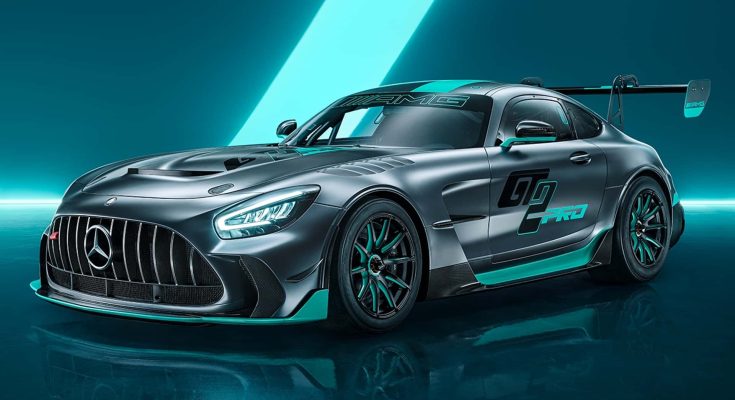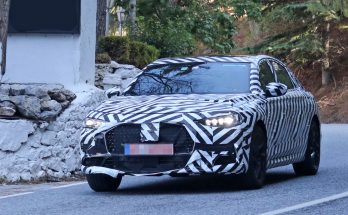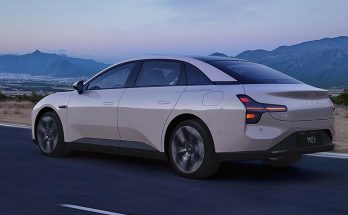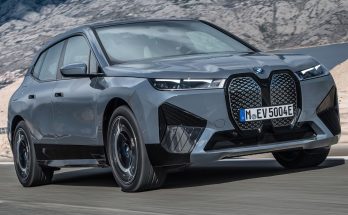Introduction to Mercedes’ sales figures
Mercedes has long been synonymous with luxury, innovation, and cutting-edge technology. Recently, the brand made headlines by announcing its latest sales figures. While many expected strong performance in the electric vehicle (EV) sector, the reality tells a different story. Electric car sales are declining, raising eyebrows across the automotive industry. What does this mean for Mercedes and its competitors? Let’s dive into the details behind these numbers and explore what challenges lie ahead for electric vehicles in today’s market.
Overview of the electric car market
The electric car market has been a hot topic in recent years. Many consumers are shifting their focus towards sustainability and eco-friendliness. As a result, the demand for electric vehicles (EVs) has surged.
Numerous automakers have launched ambitious plans to electrify their fleets. Major brands now offer various models appealing to different segments of buyers. This includes everything from affordable compact cars to luxury SUVs.
However, despite the initial excitement, growth rates have shown signs of slowing down. Supply chain issues and fluctuating battery prices pose significant challenges.
Government incentives initially boosted sales, but as these programs change or expire, consumer enthusiasm may wane. The shift in buyer behavior is becoming evident as traditional combustion engines remain popular among many drivers.
With advancements in technology on the horizon, the landscape remains dynamic yet uncertain for EV manufacturers like Mercedes and others in the industry.
Factors contributing to falling electric car sales
Several factors are influencing the decline in electric car sales. One significant hurdle is the high upfront cost. Even as prices for batteries drop, many consumers still see electric vehicles (EVs) as a premium purchase.
Infrastructure plays a critical role too. Charging stations remain sparse in many areas, making long trips daunting for potential buyers. Range anxiety looms large; people worry about running out of power without a charging option nearby.
Additionally, fluctuating fuel prices can sway consumer preferences back to traditional gasoline cars. When gas becomes cheaper, some buyers hesitate to invest in an EV that may not offer immediate savings at the pump.
Limited model options and design choices could deter interest from those wanting both style and functionality in their vehicle choice.
Impact on Mercedes and other luxury car brands
The decline in electric car sales is sending ripples through the luxury automotive market. For Mercedes, a brand synonymous with innovation and prestige, this shift presents significant challenges.
Luxury car buyers are traditionally drawn to performance and exclusivity. With electric models often lagging in these areas compared to their gas-powered counterparts, interest wanes. As a result, brands like Mercedes must rethink their strategy to align with consumer preferences.
Furthermore, competition among luxury automakers is intensifying. Rivals that quickly adapt to market demands may outshine those slow to evolve, making it crucial for companies like Mercedes not just to keep pace but also lead the way in technology and design.
With stakeholders observing closely, how well they navigate this transition could redefine their market position for years to come. The luxury segment’s reaction will be pivotal as trends continue shifting towards sustainability without sacrificing style or performance.
Challenges for electric cars in the future
Electric cars face several significant challenges as they move forward. One major hurdle is the need for a robust charging infrastructure. Current installations are insufficient in many areas, making it inconvenient for drivers to find a reliable charging station.
Battery technology also poses an issue. While advancements have been made, the quest for longer ranges and faster charging times continues. Consumers seek electric vehicles that can compete with traditional cars in performance and convenience.
Additionally, public perception plays a crucial role. Misunderstandings about electric vehicle capabilities still exist among potential buyers. Addressing concerns related to battery lifespan and maintenance costs remains essential.
Moreover, competition is intensifying as more manufacturers enter the market. This influx could lead to oversaturation or confusion among consumers regarding their options.
Regulatory changes may further complicate matters by affecting incentives or imposing new standards that manufacturers must meet to stay competitive.
Possible solutions and innovations for increasing electric car sales
To boost electric car sales, manufacturers must innovate in battery technology. Longer-lasting and quicker-charging batteries can significantly enhance consumer appeal.
Enhancing charging infrastructure is another vital step. Expanding fast-charging stations in urban areas and along highways will ease range anxiety for potential buyers.
Moreover, increasing affordability through government incentives or subsidies could make electric vehicles more accessible. A well-structured financial plan might attract first-time buyers who are hesitant about the initial costs.
Creating enticing marketing campaigns that highlight the environmental benefits of going electric can also shift public perception. Consumers today care deeply about sustainability; tapping into this sentiment could drive interest and sales.
Collaboration with tech companies may lead to advancements in autonomous driving features. Offering cutting-edge technology alongside eco-friendliness creates a compelling package for prospective customers looking for modern solutions.
Conclusion
Mercedes has recently announced its sales figures, revealing trends that may surprise many. The luxury automaker is facing challenges as electric vehicle (EV) sales are declining. This news comes amidst a shifting landscape in the automotive industry.
The electric car market has been booming over the last decade. However, recent reports show a dip in demand for EVs from various manufacturers, including Mercedes-Benz. Consumers seem to be re-evaluating their choices, particularly in light of rising costs and fluctuating fuel prices.
Several factors contribute to this decline in electric car sales. One major issue is the price point; many consumers find EVs expensive compared to traditional vehicles. Additionally, concerns about battery life and charging infrastructure deter potential buyers. A lack of models with diverse features also limits consumer options within the brand’s offerings.
This drop in electric vehicle interest significantly impacts Mercedes and other luxury brands striving to establish themselves as leaders in sustainable transport. With high expectations set on these premium brands, any downturn can lead to substantial financial repercussions and affect long-term strategies.
Looking ahead, several challenges remain for electric cars concerning consumer adoption rates and market competition. These include ensuring better affordability while expanding charging networks across urban areas—factors crucial for increasing confidence among potential buyers who might still feel hesitant about making the switch.
There are possible solutions worth exploring that could invigorate interest in EVs once more: innovative financing options such as leasing programs or incentives could make them more accessible financially; advancements in battery technology promise longer ranges; partnerships between manufacturers and tech firms may enhance user experience with smart features integrated into vehicles.
As we draw insights from Mercedes’ latest announcements regarding their sales figures alongside broader trends observed across the industry landscape, it becomes evident that addressing these issues head-on will be essential moving forward.



